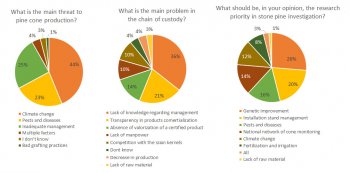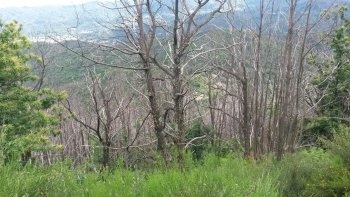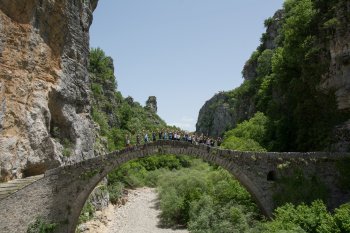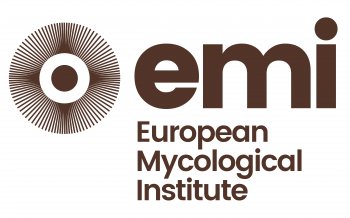Threats and concerns in the management of stone pine in Portugal: insights from a survey among stakeholders
The forest area of stone pine, Pinus pinea, has increased significantly in Portugal in the last 30 years, following the same trend of other Mediterranean countries. At the same time, forest stakeholders report losses in cone production and yield and question on the best management practices to face a already changing climate.
During a Science to Practice event entitled "Stone pine and pine nuts: more knowledge for a better management" held in Lisbon in October 2019, we conducted a survey were we were able to assess the stakeholders' concerns with the pine nut value chain...




